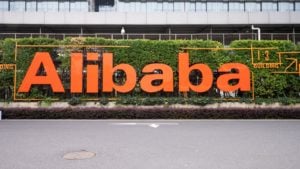Many U.S.-listed Hong Kong stocks have suffered substantial losses over the previous years as Chinese equities have continuously declined. The trend was exacerbated by last year’s ordered liquidation of heavily indebted property developer Evergrande. It deteriorated even further to see outflows from Chinese and Hong Kong stocks reaching their highest since 2014 in January. It marked the sixth consecutive month of net capital leaving the country.
However, U.S.-listed Hong Kong stocks rose on Tuesday. It followed the Chinese government announcing various measures to support the stock exchange. Hong Kong’s Hang Seng index saw a rise of 4%, whereas Mainland China’s CSI 300 accelerated by 3.48%. Measures taken included state-owned enterprises purchasing exchange-traded funds (ETFs). The securities regulator even stated they would “encourage” companies to buy shares.
Before the support measures were announced, hedge funds had already purchased large volumes of Chinese businesses, primarily with listed shares or American depositary receipts (ADRs). Hedge funds invested almost $12 billion over January 23-25 in ADRs, A-shares, and Chinese companies listed in Hong Kong. Naturally, this included U.S.-listed Hong Kong stocks. The 3-day frenzy marked the biggest purchase in five years.
Following the announcement, U.S.-listed Hong Kong stocks extended recent gains at Wednesday’s open. In recent trading, the Hang Seng index price-to-earnings (PE) ratio has decreased from around 10.50 at the beginning of January to 9.98. This suggests that various U.S.-listed Hong Kong stocks could be undervalued and poised to reverse.
Alibaba (BABA)

Despite the share price of Alibaba (NYSE:BABA) having declined 77% from its 2020 peak, its stock is currently trading at a pierce-to-earnings (PE) ratio of 10.8. In contrast, its largest American counterpart, Amazon, trades at a PE ratio of 58.3.
Analysts foresee potential upside for BABA as the company expands its cloud segment and AI initiatives. The average price target implies around 60% growth, making the U.S.-listed Hong Kong stock a favorable choice.
Aside from optimism amongst analysts, Alibaba’s founders, Jack Ma, and Joe Tsai, have recently purchased $200 million worth of stock.
NetEase (NTES)

The U.S.-listed Hong Kong stock NetEase (NYSE:NTES) trades at a PE ratio of 18.2 compared to its American counterpart, Electronic Arts (NASDAQ:EA), which has a PE ratio of 34. Despite economic headwinds, NetEase grew its EPS 26% annually over three years and improved profit margins. The company also grew its EBIT margins, generating more profits from increasing sales.
Insiders, including management, own 46% of NetEase’s shares. This strongly aligns with other shareholders’ interests, suggesting the company is motivated to create shareholder value. While NTES’ performance looks promising, some analysts note that insider buying would provide further confidence. Nevertheless, Wall Street analysts estimate a 30% share price increase.
Baidu (BIDU)

Baidu (NYSE:BIDU), the Chinese technology giant, trades at a PE ratio of 17.9. There is no directly comparable American company to Baidu, given its operations span search engine, cloud storage, social media and artificial intelligence development. However, similar companies may include Google (NASDAQ:GOOGL, NASDAQ:GOOG), which trades at a PE ratio of 24.9; Microsoft (NASDAQ:MSFT), with a PE ratio of 36.5; and Meta Platforms (NASDAQ:META), with a PE ratio of 30.6.
The U.S.-listed Hong Kong stock has declined nearly 70% from its early 2021 high, with a further drop of almost 12% in January amid the broader downturn in Chinese equities. However, analysts maintain a positive outlook for the company. This is partly due to Baidu reporting $26 billion in cash and liquid assets in its most recent earnings. The consensus price target among analysts is $167.66 per share, representing an upside of just under 60% from current levels.
On the date of publication, Stavros Tousios did not have (either directly or indirectly) any positions in the securities mentioned in this article. The opinions expressed in this article are those of the writer, subject to the InvestorPlace.com Publishing Guidelines.
Stavros Tousios, MBA, is the founder and chief analyst at Markets Untold. With expertise in FX, macros, equity analysis, and investment advisory, Stavros delivers investors strategic guidance and valuable insights.
More From InvestorPlace
The post 3 U.S.-Listed Hong Kong Stocks to Buy as Chinese Markets Collapse appeared first on InvestorPlace.

